10 Small Business Marketing Strategies That Really Work | Unlock success
Marketing is essential for small business owners looking to establish a strong presence in their niche and build meaningful customer connections. Many assume a large budget or extensive expertise is required, but this isn’t the case. With the right approach, small business marketing can be affordable and effective, especially when guided by a digital marketing specialist. Here are some strategies that Ladnek Media recommends for success.

What Do You Mean by Small Business Marketing
Small business marketing helps promote your products or services to attract new customers and increase brand awareness. These efforts are crucial for s tanding out from the competition and building customer loyalty, especially with guidance from a digital marketing specialist.
Before diving into specific strategies, start with two essentials: define your target audience and create a clear brand identity. These elements are the foundation of any successful marketing plan.
# 1. Identify Your Ideal Customer
Begin by defining who your ideal customer is. This means creating a detailed profile that covers their interests, needs, and purchasing behaviors. Rather than trying to reach everyone, narrow your focus to segments that align closely with your brand.
– Key Questions to Ask:
– What age group and gender does my customer belong to?
– What values and beliefs do they hold?
– What motivates them to make a purchase?
Market research, surveys, and data analytics from platforms like Google Analytics can refine your customer profile over time.
# 2. Differentiate with a Unique Value Proposition (UVP)
A strong UVP explains what makes your brand unique and why customers should choose you. It should highlight:
– How your product solves a customer’s problem.
– What sets you apart from competitors?
For example, a skincare brand focused on eco-friendliness could highlight ethical sourcing and environmental impact. Aligning your UVP with values that resonate with your customers can strengthen your brand’s connection to them.
# 3. Focus on One Social Media Platform
For small businesses, it’s better to excel on one social media platform rather than trying to cover them all. Choose a platform where your target audience is active and tailor your content for engagement:
– Instagram: Ideal for visual content targeting younger audiences.
– LinkedIn: Great for B2B businesses and professional content.
– TikTok: Works well with casual, authentic, and youthful vibes.
# 4. Build an Email List
Email marketing is a powerful tool for building relationships and converting interested prospects into customers. Offer value (such as discounts or downloadable resources) to encourage sign-ups. For effective email marketing:
– Use Simple Form: Keep sign-up forms brief.
– Segment Your List: Organize subscribers based on behavior or demographics for more relevant content.
Consider sending newsletters, special offers, and product recommendations tailored to each segment.
# 5. Create Valuable Content
Content marketing through blogs, tutorials, or how-to videos attracts customers by providing valuable information. This content also improves search engine rankings.
– Choose Topics: Address common customer questions or challenges.
– Vary content: Try blogs, videos, infographics, and social media posts.
# 6. Encourage Customer Reviews
Positive reviews increase credibility and attract new customers. Encourage satisfied clients to leave reviews on platforms like Google My Business and Yelp to build your reputation.
# 7. Optimize for Local SEO
Local SEO helps customers find your business in local search results. Complete your Google My Business profile with:
– Location, hours, and contact info.
– High-quality images.
– Positive reviews.
Local SEO can increase visibility and drive more local traffic.
# 8. Collaborate with Other Small Businesses
Partnering with other local businesses introduces you to a broader audience. For example:
– Joint Promotions: Offer discounts for customers who shop at both locations.
– Events: Host joint events or workshops.
Choose partners with a similar customer base to maximize impact.
# 9. Host Customer-Centric Events
Hosting events, even online, strengthens connections with new and returning customers. Event ideas include:
– Product launches.
– Webinars or Q&A sessions.
– Customer appreciation days.
# 10. Utilize User-Generated Content (UGC)
UGC, such as customer photos and testimonials, is an authentic way to build trust. Use a branded hashtag to encourage customers to share their experiences on social media.

Frequently Asked Questions:
Q 1. Why should small businesses consider working with a digital marketing specialist?
Ans. Working with a digital marketing specialist offers small businesses tailored strategies that fit within limited budgets, helping them reach specific audiences without unnecessary spending.
Q 2. What platform should I choose for social media marketing?
Ans. This depends on where your audience spends the most time. Instagram and TikTok are ideal for younger audiences, while LinkedIn works best for B2B marketing.
Q 3. How does Ladnek Media support small businesses?
Ans. Ladnek Media provides customized marketing solutions that fit your brand, with a digital marketing specialist dedicated to ensuring you connect effectively with your target audience.
Q 4. How does local SEO benefit my business?
Ans. Local SEO increases your visibility within local search results, making it easier for nearby customers to find your business and visit in person.
Q 5. Do I need a large budget to start small business marketing?
Ans. No, many effective strategies are affordable. A marketing company for small businesses like Ladnek Media can help you achieve strong results without requiring a large budget, especially when working with a digital marketing specialist.
In Summary
These strategies will help small businesses grow without an extensive budget or expertise. Your business can establish a strong online and offline presence with consistent effort and a focus on customer relationships. Start implementing a few strategies and adjust them as you find what resonates most with your audience. At Ladnek Media, we’re here to help you achieve your goals with our digital marketing specialist team and services.
The Future of Digital Marketing: Using AI for Growth and Customer Connection
Digital marketing is changing because of AI-generated content. Tools that write automatically and create images help marketers work more efficiently. At Ladnek Media, these AI tools enhance digital content writing, making reaching the right audiences easier and improving engagement.

Role of AI in Digital Marketing
Digital marketing uses AI to improve marketing. AI includes machine learning, natural language processing (NLP), and data analytics. These tools help collect and analyze a lot of data quickly. Because of this, marketers can see trends and understand how customers behave in real-time. AI helps them predict customers’ wants, provide personalized experiences, and make smarter choices. This is very important today, as using data in marketing can increase sales and make customers happier.
AI’s Influence on Traditional Marketing
Traditional marketing is often labor-intensive and requires creativity and a workforce. AI is changing this by automating processes and generating insights from vast datasets. Businesses can scale faster without needing to hire more staff. AI-driven automation lets marketers refine strategies and explore creative avenues, ensuring messages resonate more with their target audiences.
Exploring AI Tools for Content Creation
Many AI tools for content marketing help with writing, editing, and design. Tools like OpenAI’s GPT-4, Jasper, and Copy.ai can quickly create blog posts, email messages, and product descriptions. These tools are helpful for businesses that want to create content quickly while keeping it personal.
AI design platforms like Canva and Lumen5 help create great marketing images and videos. They use language processing to create clear messages that fit a brand’s style. As AI improves, these tools sound more like what humans write.
Improving Efficiency with AI Content Generation
AI-generated content helps people work faster and better. Marketers can give a few ideas and get well-written content in just a few minutes. AI handles boring tasks, like writing product descriptions, so teams can meet tight deadlines and maintain quality. This lets companies focus on creative ideas and more complicated marketing plans.
With this better efficiency, businesses can grow their marketing efforts without hiring more people.
Enhancing Customer Engagement with AI
AI is very helpful for connecting with customers by looking at their data. When brands create personalized content that matches people’s likes, they are more interested. AI can send the right message at the right time, which helps increase clicks and sales.
In email marketing, AI helps choose the best times to send messages, catchy subject lines, and suitable content based on users’ actions. This makes emails more interesting and relevant. By using AI’s ability to predict trends, brands can create valuable interactions that encourage customer loyalty.
Identifying AI-Generated Content
As AI-generated content becomes more advanced, spotting it gets harder. Here are key signs to look for:
Signs of AI-Generated Content
Repetitive Language: AI uses repetitive sentence structures and phrases, often needing more creativity.
Lack of Depth: AI can provide factual information but often needs more unique insights.
Unusual Formatting: AI needs help with complex formatting, leading to awkward sections.
Inconsistent Tone: AI-generated text may fluctuate between formal and casual tones, making it feel less cohesive.

Tools for Detecting AI Content
AI Text Classifiers: Tools like OpenAI’s AI text classifier can identify AI-generated text.
Plagiarism Checkers: Since AI uses existing data, plagiarism checkers can flag content that closely resembles other sources.
Manual Reviews: Human editors can spot inconsistencies and lack of originality.
Best Practices for Content Quality
Balancing AI use with human oversight is essential for authentic, high-quality content. AI can handle the heavy lifting, but human editors should refine the content before publishing. This ensures alignment with the brand voice and maintains reader value.
Risks of Over-Reliance on AI
While AI enhances efficiency, over-reliance can lead to issues:
Loss of Creativity: AI lacks emotional intelligence, which can result in generic content.
Inaccuracy: AI-generated content may contain errors if unchecked by humans.
Ethical Concerns: Marketers must ensure compliance with regulations to avoid copyright infringement.
FAQs
Q1. What is a paid media agency?
Ans. A paid media agency helps businesses run ads on different platforms to get more attention and engagement.
Q 2. How can small businesses benefit from a marketing company?
Ans. Small businesses can use a marketing company to create special plans and tools that help them connect with their target customers better.
Q 3. What is digital content writing?
Ans. Digital content writing means creating online materials, like articles and social media posts, that grab readers’ attention and share useful information.
Q 4. How can a small business marketing company use AI?
Ans. A marketing company can automatically use AI to do repetitive tasks, study customer information, and make personalized content that appeals to their audience.
Conclusion
Digital marketing is changing because of AI, especially when creating content. Marketers at Ladnek Media, a leading marketing company for small businesses, need to be careful not to rely too much on AI. It’s important to balance the speed of AI with human creativity to keep marketing real and high-quality.


